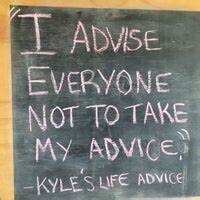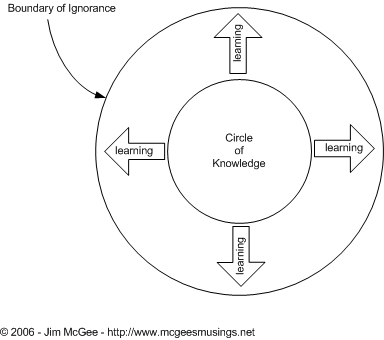Venturer
Breaking Down Bad Writing Advice: Separating Fact from Fiction
Updated at 11-07-2023 · Education
Every writer, regardless of their experience level, has stumbled upon an assortment of advice - the good, the bad, and the downright ugly. This guide aims to shine a light on "bad writing advice", helping you distinguish between unhelpful tips and advice that actually empowers your writing.
The Allure of Bad Writing Advice
Why does bad writing advice persist in the face of logical reasoning and practical experience? It's a question that baffles many a writer, and the answer isn't as clear-cut as we'd like.
Myth Peddling
In some instances, bad writing advice thrives due to a lack of awareness or understanding. Many writers, especially beginners, may latch onto these tidbits of 'wisdom', assuming that established authors and industry experts must know best.

One Size Does Not Fit All
Another factor in the propagation of bad writing advice is the assumption that what works for one author should work for all. Just as every writer is unique, so too is their process, and what helps one person may hinder another.
Debunking Common Pieces of Bad Writing Advice
Bad writing advice, though often well-intentioned, can create unnecessary obstacles for writers. Let's take a deeper dive into some popular yet unhelpful suggestions that you might encounter on your writing journey.

"Write What You Know"
This piece of advice has been immortalized in the writing community. While it's based on a nugget of truth — writing from personal experience can lend authenticity to your work — it shouldn't be taken as gospel. Writers are creators, world-builders, and explorers of the human condition. If we were to only "write what we know," we would severely limit our creative potential.
Instead, use your experiences as a launch pad, not as a boundary. Write what you're curious about, what you're passionate about, or even what you fear. Your emotional truth can shine through, regardless of the subject matter.
"Never Use Adverbs"
"Adverbs are the devil's handiwork," some experts would have you believe. Adverbs, like any other component of language, have their place. It's not the adverb itself that's the issue, but how it's used. An adverb becomes a problem when it's used as a crutch, a shortcut to bypass stronger, more descriptive writing.
Rather than eliminating adverbs altogether, use them judiciously. They can provide useful nuances to your writing when used properly. The rule here should not be "never use adverbs," but "use adverbs wisely."
"Show, Don't Tell"
"Show, don't tell" is a classic writing mantra. But, like any advice, it shouldn't be followed blindly. While showing is an effective way to immerse your readers in your story, there are instances where telling is more appropriate. A balance between showing and telling can give your story a better rhythm and pace.
So, instead of sticking strictly to "show, don't tell," consider "show when it's crucial, tell when it's practical."
"Write Every Day"
This advice comes from the theory that practice makes perfect. Yes, writing consistently can help improve your craft, but the notion that you need to write every day to be a successful writer is simply not true. Everyone has their own pace and process. Some writers thrive on daily writing, while others produce their best work in sporadic, intense bursts.
Therefore, rather than forcing yourself into a daily writing regimen, find a routine that suits your style and schedule. It's more important to maintain a sustainable, enjoyable writing practice than to adhere rigidly to a "write every day" commandment.
"Kill Your Darlings"
This dramatic advice often confuses and disheartens writers. It doesn't mean you should delete your favorite parts of your writing. Rather, it encourages you to be ruthless in your self-editing process, and not to hold onto passages that don't serve your overall story, even if you love them.
However, this shouldn't be taken to mean that anything you like in your writing is likely self-indulgent and should be cut. It's a delicate balance. Trust your instincts and don't hesitate to seek feedback when you're unsure.
By understanding the true nature and potential pitfalls of these commonly given pieces of advice, we can better navigate the vast ocean of writing guidance, and cultivate a writing process that respects our unique creative impulses.
Spotting Bad Writing Advice
How can you differentiate between good and bad writing advice? Here are some pointers to help you steer clear of unhelpful suggestions.
Does It Limit Creativity?
Good writing advice encourages creativity, not stifles it. If a piece of advice seems to restrict your creative license, it's probably best to take it with a grain of salt.
Is It One-Size-Fits-All?
Remember, writing is not a one-size-fits-all venture. If the advice you're given seems to generalize all writing processes, it's likely not the best advice to follow.

How to Take Writing Advice
Understanding how to accept and apply writing advice can significantly impact your development as a writer.
Context is Key
Always consider the context in which the advice is given. Is it relevant to your style, genre, or project? If not, feel free to toss it aside.
You Are Your Best Judge
At the end of the day, you know your writing process better than anyone else. Listen to your instincts. If advice doesn't resonate with you, it's okay to reject it.
Transforming Bad Writing Advice into Good
Not all bad writing advice needs to be discarded. In fact, with a little tweaking, you can turn unhelpful tips into beneficial strategies.
From "Write What You Know" to "Write What You Want to Understand"
Instead of limiting yourself to what you know, venture into the unknown. Explore topics and themes that intrigue you, even if they're outside your realm of experience.
From "Never Use Adverbs" to "Use Adverbs Wisely"
Don't shun adverbs, but learn to use them wisely. Be conscious of their placement and ensure they enrich your prose, not clutter it.
Frequently Asked Questions
Here are some common questions about bad writing advice:
-
What makes writing advice bad? Bad writing advice usually falls into one of two categories: it either stifles creativity or it tries to offer a one-size-fits-all solution.
-
How do I identify bad writing advice? If the advice seems to restrict your creative freedom or it oversimplifies the complexities of writing, it's probably bad advice.
-
Should I follow all writing advice? No. Not all advice will apply to your specific writing process or project. Learn to differentiate between helpful and unhelpful advice.
-
Can bad writing advice ever be useful? Yes. Sometimes, bad advice can be transformed into good advice with a little tweaking and a change in perspective.
-
What's the most common piece of bad writing advice? Some might argue "write what you know" is the most common piece of bad writing advice. It unnecessarily limits a writer's exploration of new ideas and experiences.
-
Can I ignore writing advice? Absolutely. You are your best judge when it comes to your writing. If advice doesn't resonate with you, feel free to ignore it.
Conclusion
Bad writing advice can be misleading and detrimental to your growth as a writer. The key is learning to discern the good from the bad, and understanding that you have the final say in which advice to take and which to leave behind. Ultimately, the best advice is what truly works for you.
-1675940156.jpg)

.jpg)



